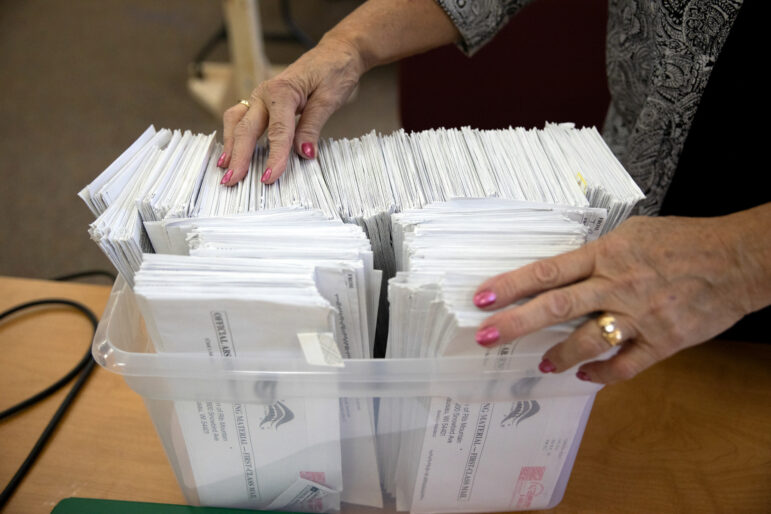League of Women Voters Sues To Block Absentee Ballot Correction Ruling
Lawsuit is one of many pending before upcoming election that would impact how absentee ballots can be counted.
A lawsuit filed by the League of Women Voters of Wisconsin seeks to allow clerks to accept absentee ballot envelopes with incomplete witness address information. The suit and a request for a temporary injunction comes a month after a Waukesha County judge ruled clerks cannot correct incomplete witness addresses.
The League is suing the Wisconsin Elections Commission in Dane County Circuit Court. The group is asking Judge Nia Trammell for a declaratory judgment aimed at clarifying state statute barring clerks from counting a ballot if the envelope, also referred to as a witness certificate, “is missing the address” of that individual.
The suit is just one of several legal battles related to voting in the state. Multiple lawsuits have been filed over absentee ballot witness certificates and 2016 guidance from the WEC stating clerks may correct missing address information based on other information on the envelope “or other reliable extrinsic sources.” The idea behind the policy was to prevent voters from being disenfranchised.
In early September, a Waukesha County Judge ruled clerks are not allowed to correct the certificates.
Because of that ruling, and the undefined definition of the word “missing,” the League is also seeking a temporary injunction “that requires notice be provided to any and all voters” with a problem on their witness certificate envelopes.
During a Friday hearing, Attorney Dan Lenz, who is representing LWV, said ballots with witness certificates that include a partial address or even just the name of a municipality should not be rejected. He said current law creates confusion among clerks that could cause votes not to be counted.
“So, our relief is really narrowly tailored to avoid disenfranchisement and confusion,” said Lenz. “This is information that will go to the clerks about how they’re supposed to handle these ballots.”
Judge Trammell was skeptical.
Assistant Attorney General Steven Kilpatrick, who is representing the state elections commission, argued that a commonsense reading of absentee voter laws “surely means that missing cannot mean completely blank.”
Kilpatrick also questioned the injunction ordering WEC to require clerks to contact voters with ballot issues because the commission’s prior guidance on absentee ballot corrections was only advisory.
“It’s guidance,” said Kilpatrick. “It’s not the law. It’s advice to clerks.”
Judge Trammell said she would issue a ruling on the League of Women Voters’ motions within the coming weeks. But she said she has some concerns regarding whether changing rules surrounding absentee ballots again, within a month of the November election, would cause more confusion.
League of Women Voters suing to prevent absentee ballots with incomplete witness addresses from being rejected was originally published by Wisconsin Public Radio.






















